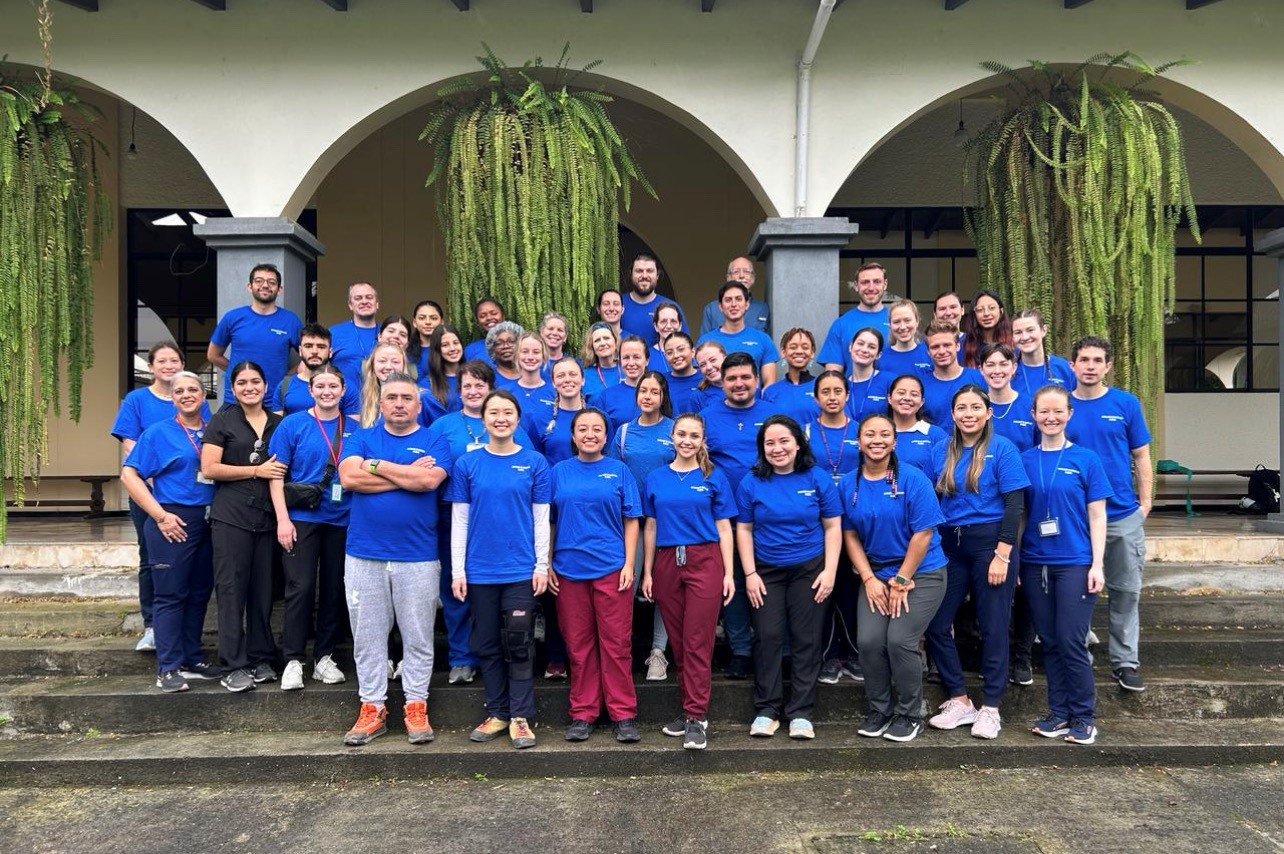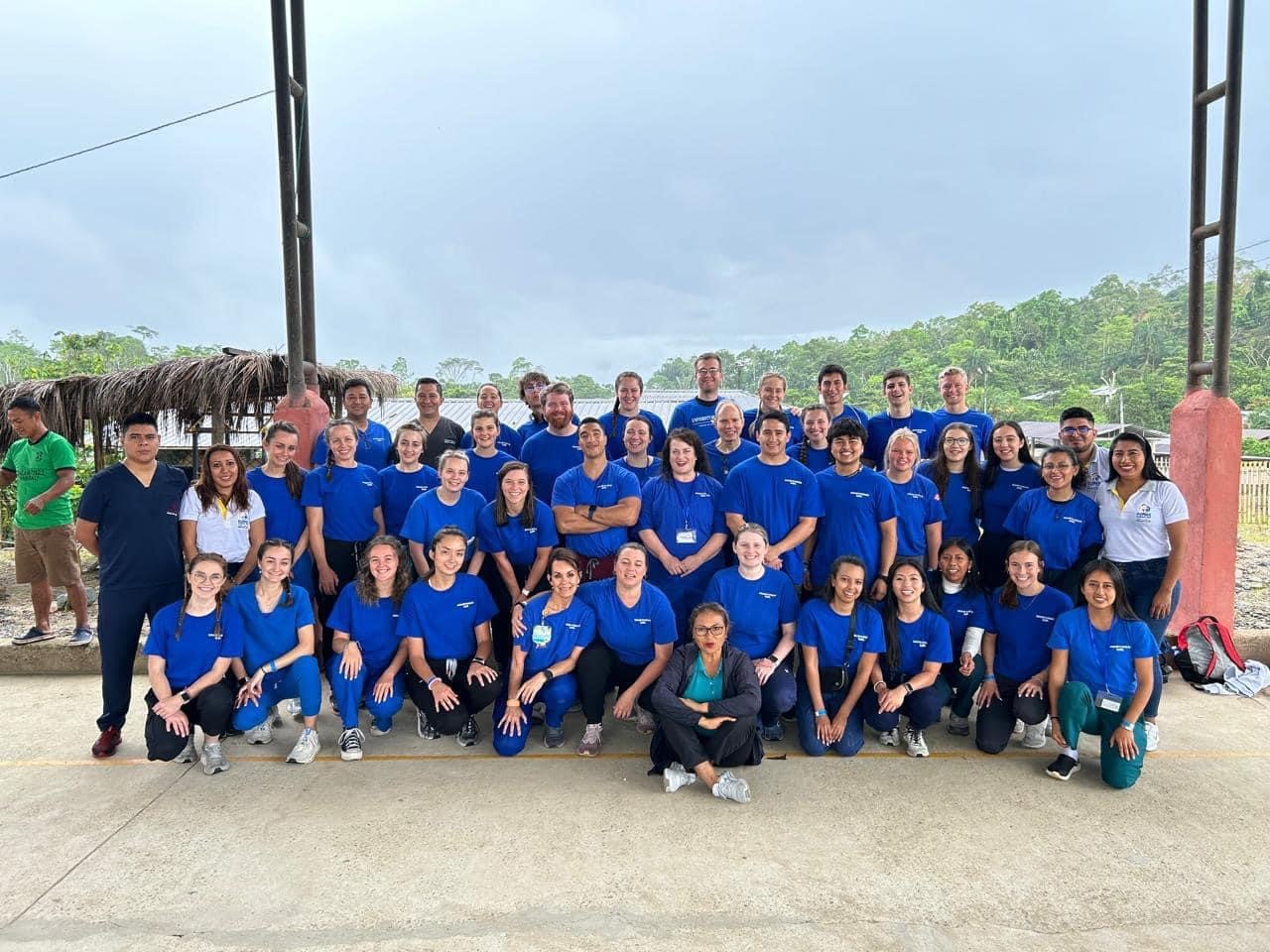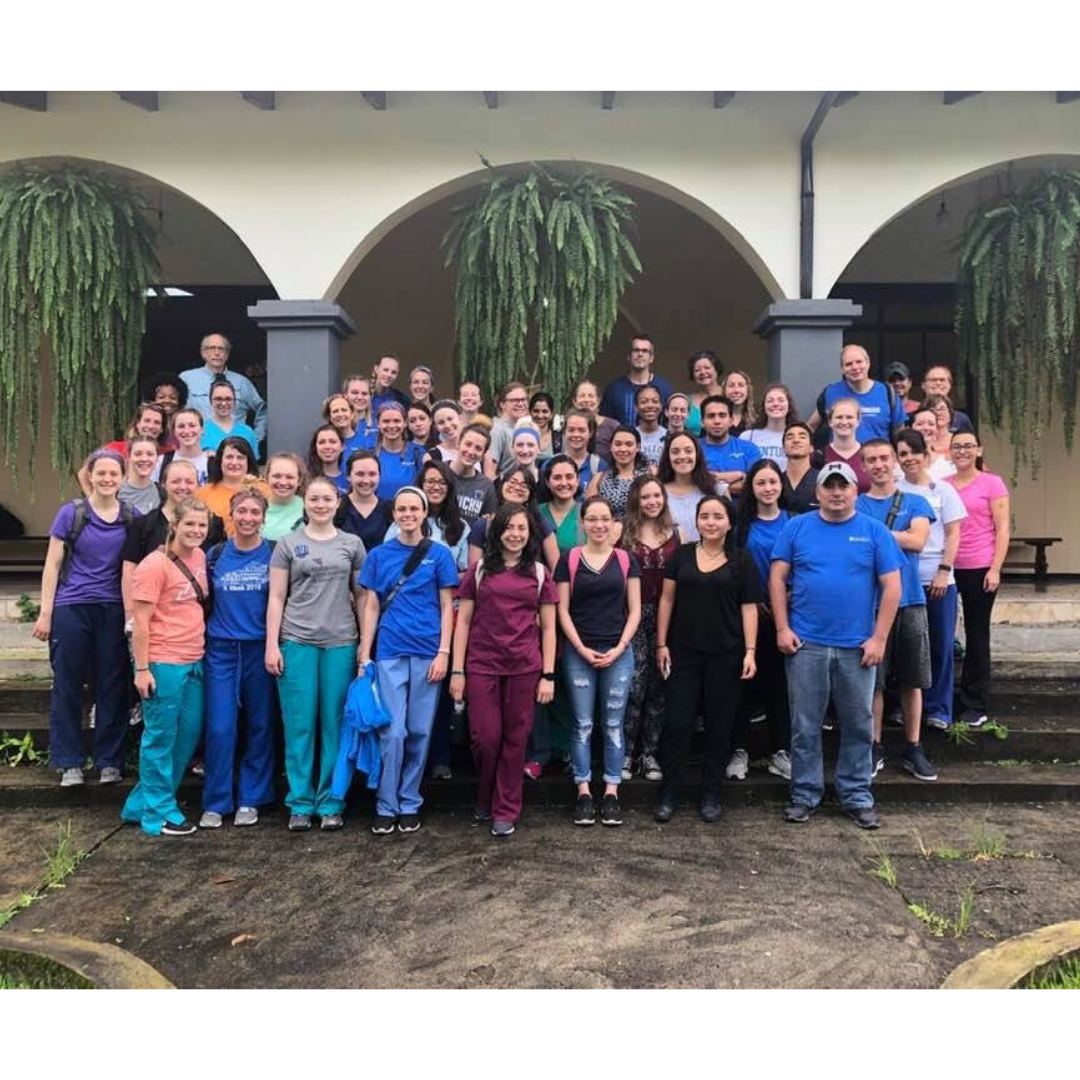Our mission is to educate physicians and scientists who will positively impact care for patients in the Commonwealth and beyond. Thanks to a variety of ongoing global health initiatives within the college, residents, and fellows are gaining invaluable experience in dozens of countries – helping thousands of patients while learning unique skills to enhance their practice of medicine.
Thomas Young, MD, the Jim and Suzanne Elliott and Family Professor of Pediatrics, has contributed greatly to the global health experiences of hundreds of trainees at UK. He founded Shoulder to Shoulder Global, an organization under the UK International Center working to improve health care in an underserved community of Ecuador.
Dr. Young said UK has had a connection with the country for over 50 years, having been “matched” by Partners of the Americas. “When I was looking for a site to do our first global health initiative, it made sense to tie to contacts we had in Ecuador,” he said.
Dr. Young’s first trip was in 2002, just with pediatricians. Now, each trip, he brings between 35-50 faculty and trainees from the colleges of Medicine, Arts and Sciences, Education, Dentistry, Health Sciences, Nursing, and Pharmacy. He runs three trips per year.
Shoulder to Shoulder Global brigades work to support sustained health care quality in the area. The organization helped establish a year-round active health center that has been open for 17 years.
“What you don’t want to do in short-term global health initiatives is go down for a week and disappear,” Dr. Young said. “Each of the trainees who go knows they are not only paying for their own housing, room and board, and medical supplies, but also to keep the clinic running because the clinic is who follows up on our patients.”
In addition, Dr. Young oversees the global health track within the UK College of Medicine Department of Pediatrics. It started 10 years ago and works “hand in hand” with the Shoulder to Shoulder Global. At a given time, there are about 12-15 categorical pediatrics, med-peds, and triple-board residents involved. They join weeklong medical missions in their first two years of residency, then serve a month-long rotation in their third or fourth year.
Dr. Barko served alongside an attending on the pediatric floor and pediatric ICU of the partnering hospital. He also worked alongside residents from Tanzania and helped to train their third-year medical students.
While there, Dr. Barko saw diseases he didn’t often see at UK, such as malaria and tuberculosis. The experience opened his mind to the variety of pathologies physicians treat. Along with developing an appreciation for more abundant U.S. health care resources, he also learned how lack of access to care can plague communities.
He recommends other physicians take advantage of these experiences. “There are so many opportunities to help other communities,” he said.


